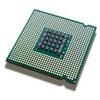Internet of Things (IoT) systems require highly scalable infrastructure to adaptively provide services to meet various performance requirements. Combining Software-Defined Networking (SDN) with Mobile Edge Cloud (MEC) technology brings more flexibility for IoT systems. We present a four-tier task processing architecture for MEC and vehicular networks, which includes processing tasks locally within a vehicle, on neighboring vehicles, on an edge cloud, and on a remote cloud. The flexible network connection is controlled by SDN. We propose a CPU resource allocation algorithm, called Partial Idle Resource Strategy (PIRS) with Vehicle to Vehicle (V2V) communications, based on Asymmetric Nash Bargaining Solution (ANBS) in Game Theory. PIRS encourages vehicles in the same location to cooperate by sharing part of their spare CPU resources. In our simulations, we adopt four applications running on the vehicles to generate workload. We compare the proposed algorithm with Non-Cooperation Strategy (NCS) and All Idle Resource Strategy (AIRS). In NCS, the vehicles execute tasks generated by the applications in their own On-Board Units (OBU), while in AIRS vehicles provide all their CPU resources to help other vehicles offloading requests. Our simulation results show that our PIRS strategy can execute more tasks on the V2V layer and lead to fewer number of task (and their length) to be offloaded to the cloud, reaching up to 28% improvement compared to NCS and up to 10% improvement compared to AIRS.
翻译:暂无翻译




